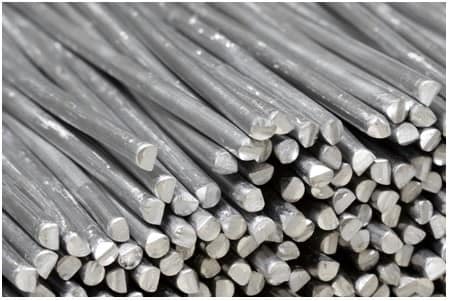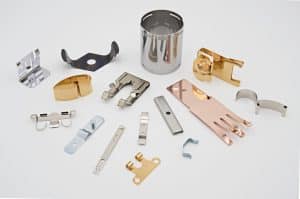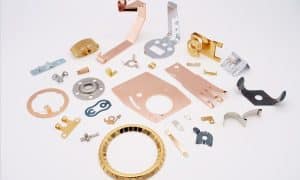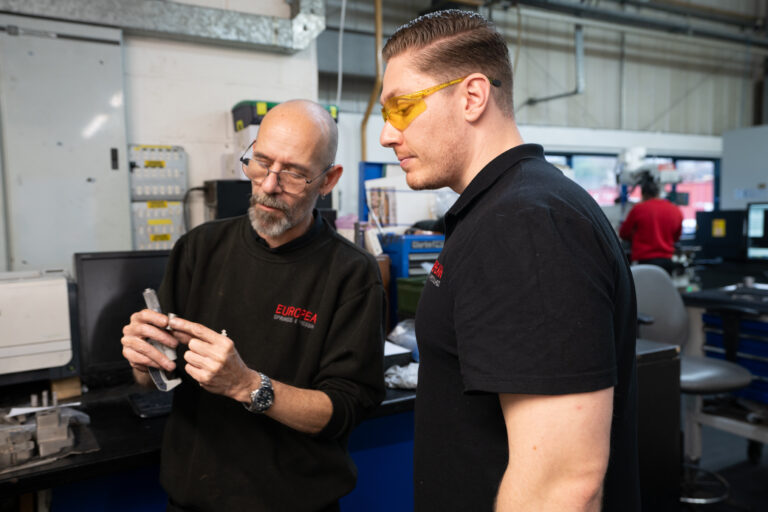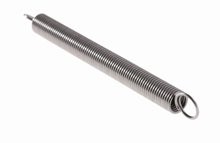
What Materials are Used to Manufacture Springs?
The quick answer is that steel alloys are the most common material used by spring manufacturers. However, a range of materials and types of steel alloys can be used:
- Low-Alloy Steel
- Cold Formed Steel
- Oil Tempered
- Bainitic Hardened Steel
- Stainless Steel
- Copper & Titanium Alloys
Experts such as compression spring manufacturers recognise that using high-quality materials is the best way to create an end-product that is thoroughly reliable. Our quality springs are a result of talented employees, cutting-edge machinery and high-quality base materials, in this article, we talk more specifically about those materials and why they are so important to our process.
Low-Alloy Steel
Low alloy steels are ferrous metals often considered superior to carbon steels in many ways, though it always depends on the intended use. Low alloy steels are created by adding other elements such as nickel or molybdenum.
Low-alloy steels have various specific advantages that make them suitable for certain types of springs. Some benefits over mild steels are that they have very high-temperature properties such as hot compressive strength, which means it can last longer under axial stress – which is very important for springs. This is achieved through the addition of chromium, molybdenum or nickel, which has also been documented for improving creep strength.
Cold Drawn Wire
Cold-formed steel parts and products are well known for having greater tensile strength and tolerance of stress and temperature – not to mention the surface finish. Cold drawn is a type of work hardening that affects the materials basic crystalline structure which changes its properties. Talented spring manufacturers apply a variety of techniques to create wire forms and springs such as tension springs and die springs, with different qualities and capabilities for different applications.
Oil Tempered Spring Wire
This type of wire is widely used in the automotive industry which makes it a very important spring wire for everyday life. The category of oil tempered wire covers a range of mini classifications which define the properties of wire, including its fatigue stress properties. These wires are often used in products where a suspension is integral to the device’s ability to function, such as cars.
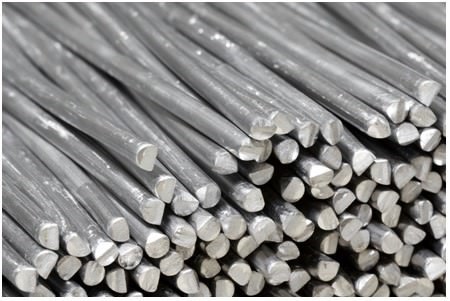
Bainite Hardened Strip
Hardening steel is important for crafting materials with greater strength and fatigue resistance. Bainitic hardening is one method through which steels are submitted to heat treating. Bainitic tempering is preferred to martensitic steels because crafting with bainite rarely needs further heat treatment.
Stainless spring steel
Stainless steels are created by raising the amount of chromium in the steel to at least 10% but usually closer to 17%. Stainless spring-tempered steels also include around 7% nickel, some magnesium and even carbon. Stainless spring steel’s greatest quality is its fantastic yield strength.
Stainless spring steel is used in a range of applications such as washers, lock picks, antennae and, of course, springs. In many of the applications for stainless spring steel, it is vital that the steel has properties that protect against corrosion.
The high concentration of chromium in this steel is what provides protection against oxidisation, as well as protection against some organic acids. The nickel used in this metal, on the other hand, protects against reducing atmospheres and acids such as phosphoric.
This spring steel is also good for applications which need to withstand high temperatures. It cannot be hot worked below 1700oF and it is recommended to work at temperatures of2100oF for a successful forging. This results in the majority of stainless spring steel forms having been created through cold working techniques, though this can cause magnetism in the material which will need to be treated after the form is cast.
Copper- and Titanium Alloys
Although steel and its various alloys are in great demand, we also work with copper and titanium alloys. Titanium alloys can be crafted from a range of elements including aluminium and molybdenum, but titanium is more costly than steel which means that it is generally only used for projects where precision is important and the cost can be justified, such as military aircraft and space travel.
Copper and titanium alloys are both used by torsion spring manufacturers to create torsion springs, which are used in the day-to-day in doors and hinges, retractable seats and even medical equipment.
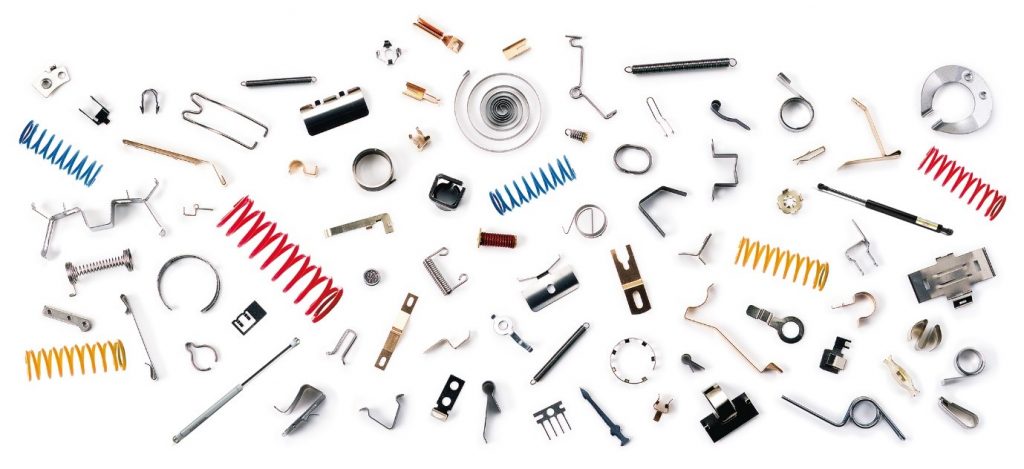
There are so many important uses of springs and wire forms in our modern lives, so it’s so important that whatever you and your business are making, that you get it right by choosing a manufacturer who creates your parts from high-quality materials as we do. As small spring manufacturers, we offer top quality springs, custom to your requests. For further information or details about the quality of our springs, please feel free to get in touch with our friendly team of experts.
